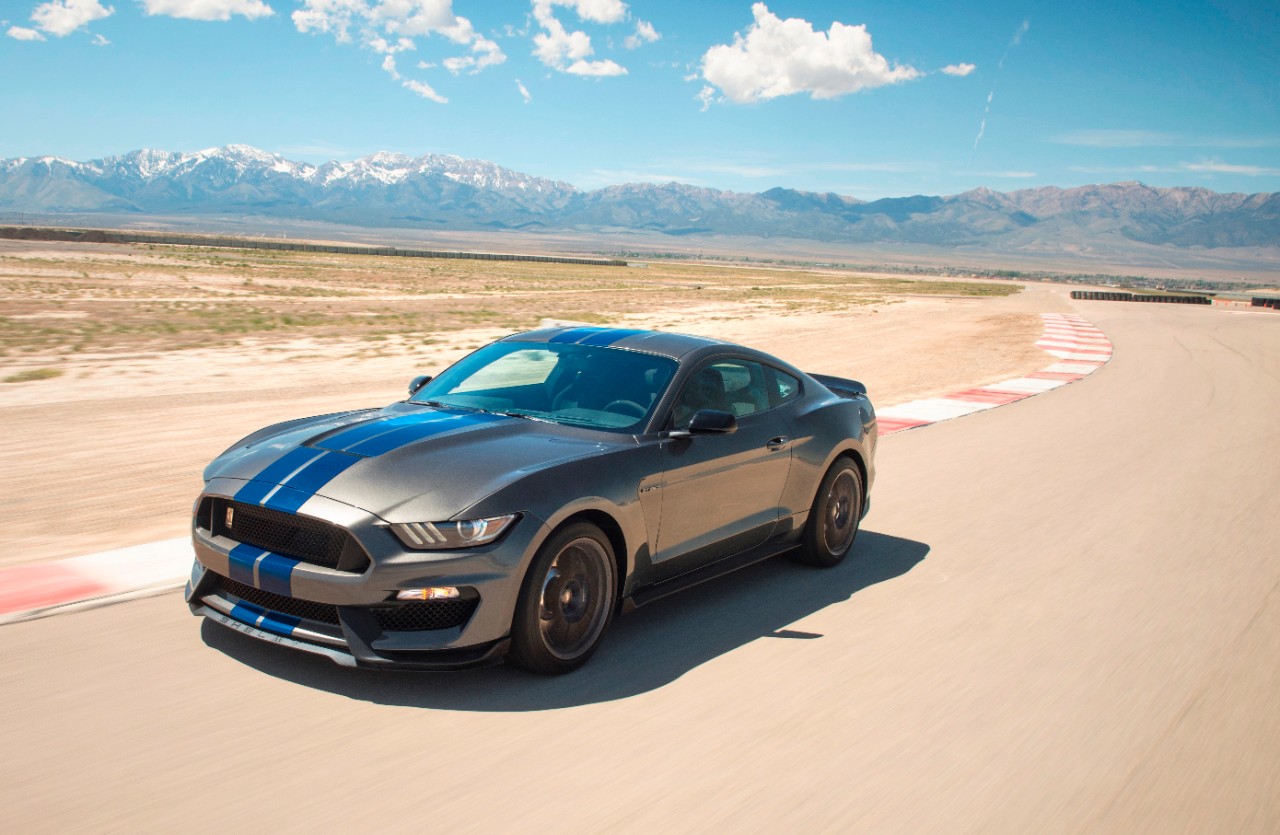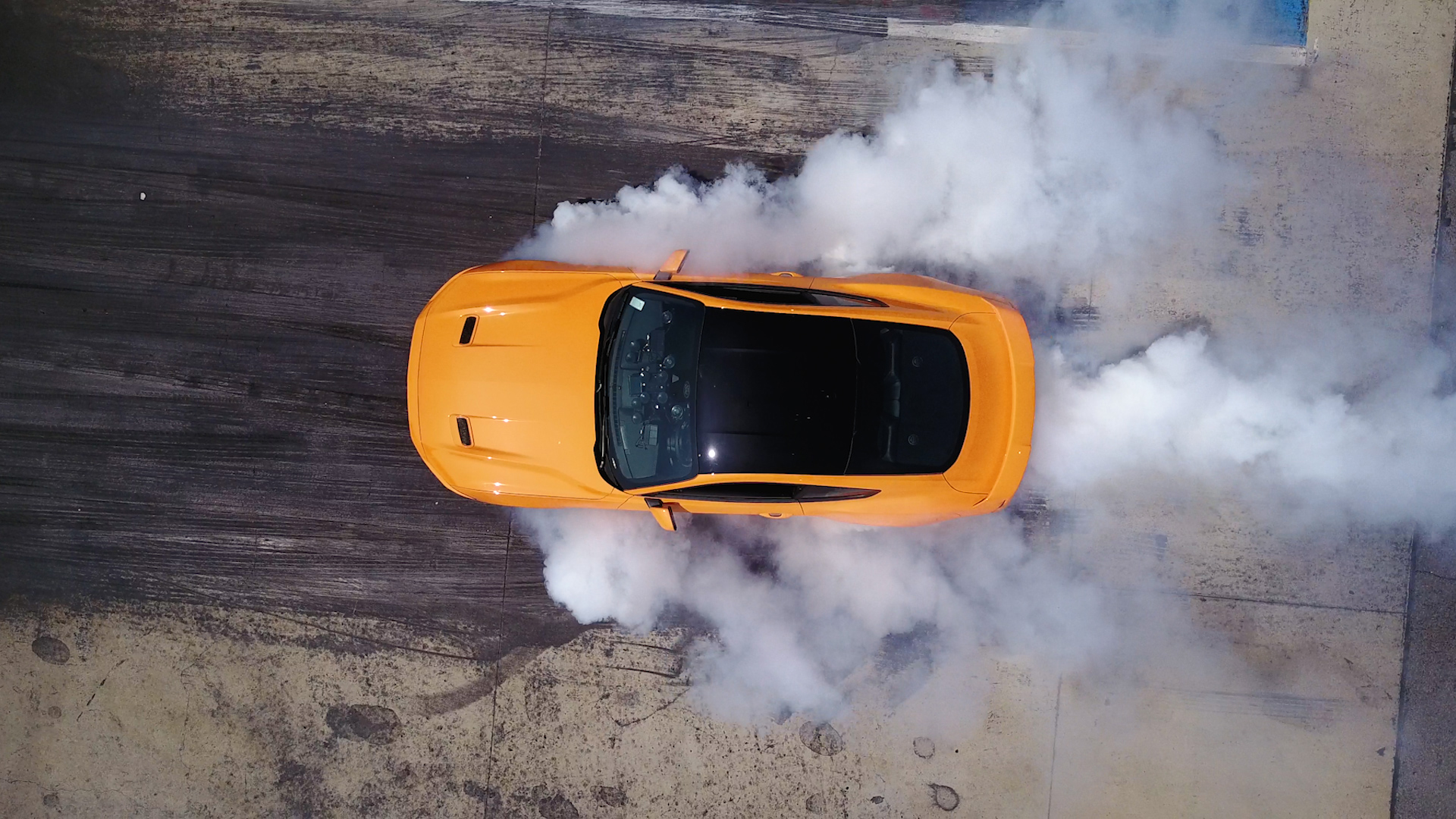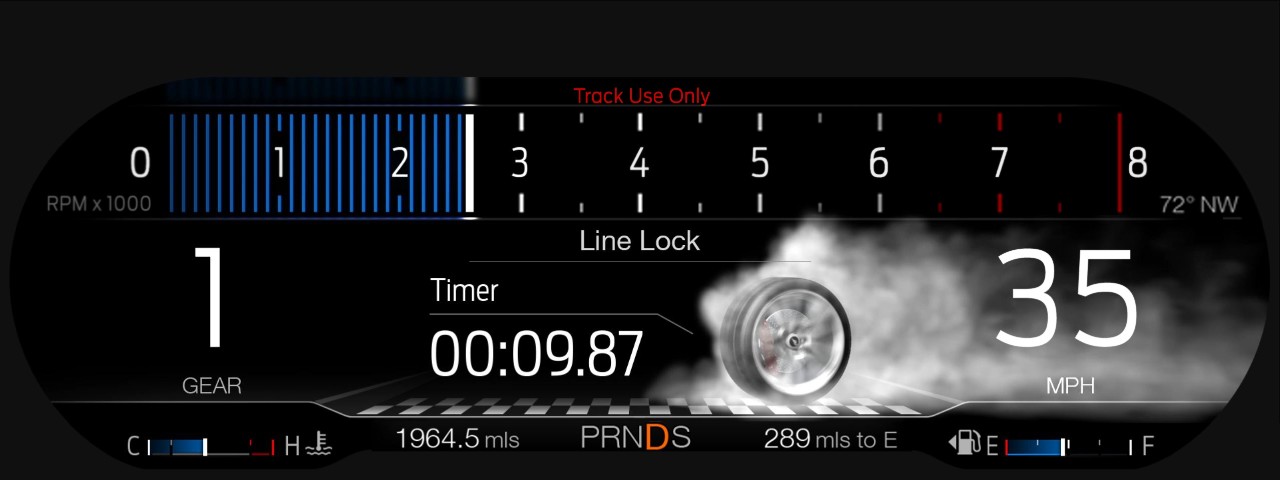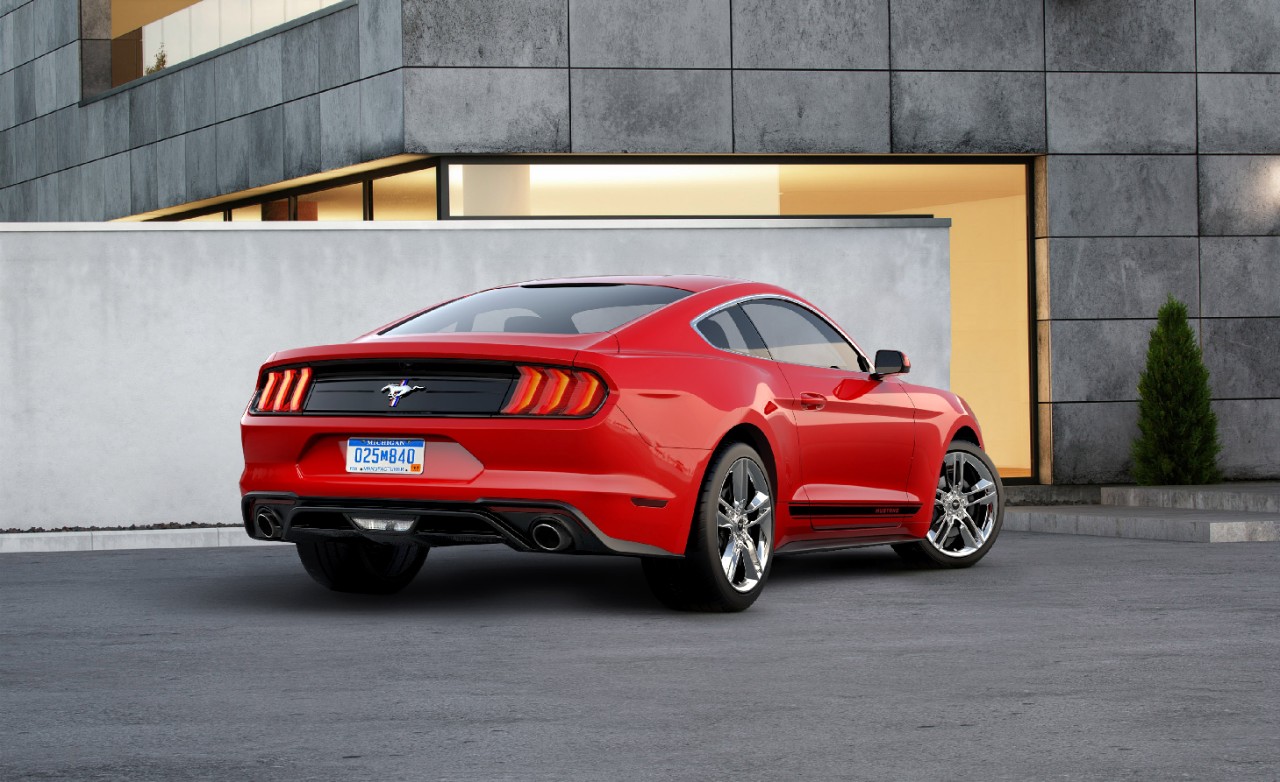Ford Mustang’s Future: How Important is Technology?

Could the Ford Mustang become a driverless car to stay competitive? (Part two of a two-part series.)
It goes without saying that when it comes to the coveted top spot in the world of muscle cars, the Ford Mustang is still the one to beat — even if the car does find itself losing the monthly sales crown from time to time.
The first installment of this series (linked here) pretty much highlighted that point.
Still, given the fierce competition now being waged by the Chevrolet Camaro and Dodge Challenger and the unpredictability of sales, it does make you wonder: exactly what does the future look like for the American pony car? And more specifically, what’s in store for Mustang fans down the road?
Well, that all depends on who you ask.
Options, Options, Options.
T. Walker, a Los Angeles-based lifestyle and branding expert, said that the Detroit carmakers’ biggest challenge moving forward will be finding a way to appeal to the next generation of car buyers.
“Young people simply don’t seem to care about cars or driving. There was a time where we rushed to the DMV as soon as we were legally able to get a license,” says Walker, who also runs a men’s advice lifestyle site called Mankind Unplugged. “This generation is in no rush to obtain a license and drive.”
Walker also contends that the rapid growth in ride-sharing services like Uber and Lyft could negatively impact muscle car sales as well as increase the appeal of European brands like BMW and Mercedes-Benz that now offer more affordable performance models.

Long Live American Muscle
AutoPacific’s Dave Sullivan, however, says there will always be a market for American muscle cars. “The Mustang and Camaro are iconic pieces of history. People will continue to covet them for decades to come,” contends the managing product analyst insider.
Mike Spagnola, SEMA’s Vice President of OEM and product development, echoed those sentiments. “The rivalry will live on; it just might look different to the next generation of hot-rodders,” he said.
ALSO SEE: What the Forum Has to Say About the Future of the Ford Mustang
Ford Mustang Marketing Manager Mark Schaller certainly believes that muscle cars will remain viable but notes that there will always be ups and downs in the segment.
“Sports cars are still […] an escape and release,” says Schaller. “You are going to see the segment expand and contract.”
One thing’s for certain: Ford definitely is exploring new ways to position the Mustang with new consumers. In an effort to gain more appeal with millennials, the carmaker recently teamed up with the pop group Little Mix to feature the Mustang in a new single from their new album Glory Days.

Drivetrain Technology
At the end of the day, an exciting new product will still be the key in appealing to consumers, says Sullivan. The AutoPacific analyst predicts that new innovative engine technology will be one of the primary features that will drive the American muscle car rivalry’s future.
“It’ll be partially electrified,” he says. “Why? Low-end, instant torque. It’s addictive and fills the space where gas-powered engines can’t make much torque. When we have street legal cars today that can hit 840 HP and we have challenges such as CAFE targets and tightening emissions, I am confident that engineering breakthroughs will continue to bring us cleaner and more powerful cars.”
Spagnola agrees.
“The future’s still bright, though engine displacement will get smaller,” says the SEMA executive. “In 2005, Ford made headlines with its 300-horsepower V8 Mustang. Now, just 12 years later, the new Ford Focus RS 2.3 Liter four cylinder has 350 horsepower with 350 pounds of torque. Adding CARB-approved accessories can boost this little four-cylinder engine to more than 400 horsepower.”

Tech-wise, Ford has also been pushing the boundaries in the Mustang’s cockpit to appeal to a new generation of buyers. The availability of the aforementioned new line-lock feature also comes with an industry-first cluster animation that displays the wheel actually smoking the tires.
There are also rumors that the next higher-performance Mustang variant (possibly badged as a new Shelby GT500) will feature a number of new high-tech features including a supercharged version of Ford’s 5.2-liter flat-plane crank V8 capable of putting out 700-plus horsepower.

How About a Driverless Mustang?
Schaller wouldn’t discuss any specifics regarding future plans for the Mustang other than reaffirming that it will remain an important part of the carmaker’s product strategy. No surprise there, right? But with all the growing interest in autonomous vehicles, could the future rivalry between the American muscle cars play out in the world of total driverless models?
Not likely, says AutoPacific’s Sullivan.
“That sounds like an oxymoron. A muscle car is an emotional purchase. It’s not something that ever makes sense,” says the analyst. “They need to retire muscle cars if something like (an autonomous Mustang) ever happens. That being said, a happy medium will be reached with adaptive cruise control and other advanced driver-assist technology.”
In fact, Ford announced early this year that it plans to build a hybrid-powered V8 Mustang, so it’s a good chance that the model is probably already in the works.
Personally, I think we could see an autonomous Mustang on the road in the near future, but only time will tell. Either way, this is one rivalry that’s sure to become even more interesting in the years to come.
